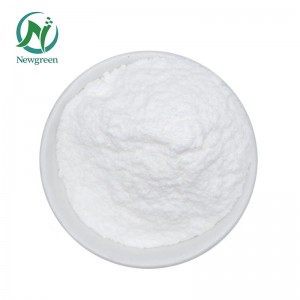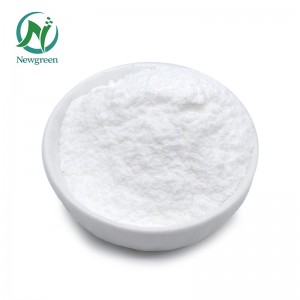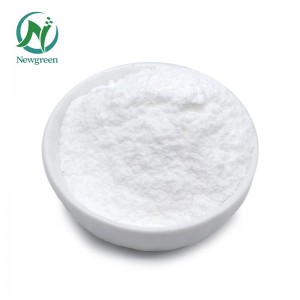Top quality Vitamin B6 CAS 58-56-0 Pyridoxine hydrochloride powder

Product Description
Vitamin B6, also known as pyridoxine or nicotinamide, is a water-soluble vitamin found in a variety of foods. It plays an important role in the human body and participates in a variety of biochemical reactions and metabolic processes. Here is basic information about vitamin B6:
1.Chemical properties: Vitamin B6 is an organic compound with the chemical name 3-(aminomethyl)-2-methyl-5-(phosphate)pyridine. Its chemical structure contains pyridoxine and picoic acid moieties.
2.Solubility: Vitamin B6 is water-soluble and can be dissolved in water. This means that it is not stored in the body like fat-soluble vitamins, but is quickly excreted in the urine after ingestion. Therefore, we need to get enough vitamin B6 from food every day.
3.Food sources: Vitamin B6 is widely found in a variety of foods, especially protein-rich foods such as meat, fish, poultry, plant proteins such as beans and nuts, whole grains, vegetables (such as potatoes, carrots, spinach) and fruits (such as bananas, grapes and citrus).
4.Physiological effects: Vitamin B6 participates in a variety of biochemical reactions and metabolic processes in the human body. It is a cofactor for many enzymes and promotes the metabolism of proteins, carbohydrates and fats. In addition, vitamin B6 also plays an important role in the normal development and function of the nervous system, hemoglobin synthesis, and the regulation of the immune system.
5.Daily Requirements: Recommended intakes of vitamin B6 vary based on age, gender and specific circumstances. Generally speaking, adult men require approximately 1.3 to 1.7 mg per day, and adult women require approximately 1.2 to 1.5 mg per day.
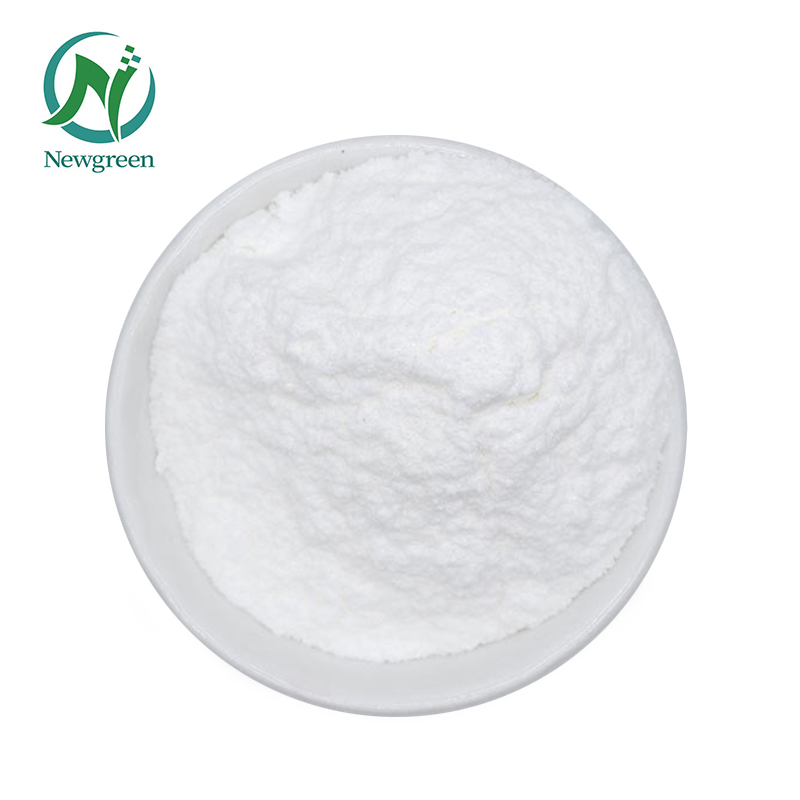
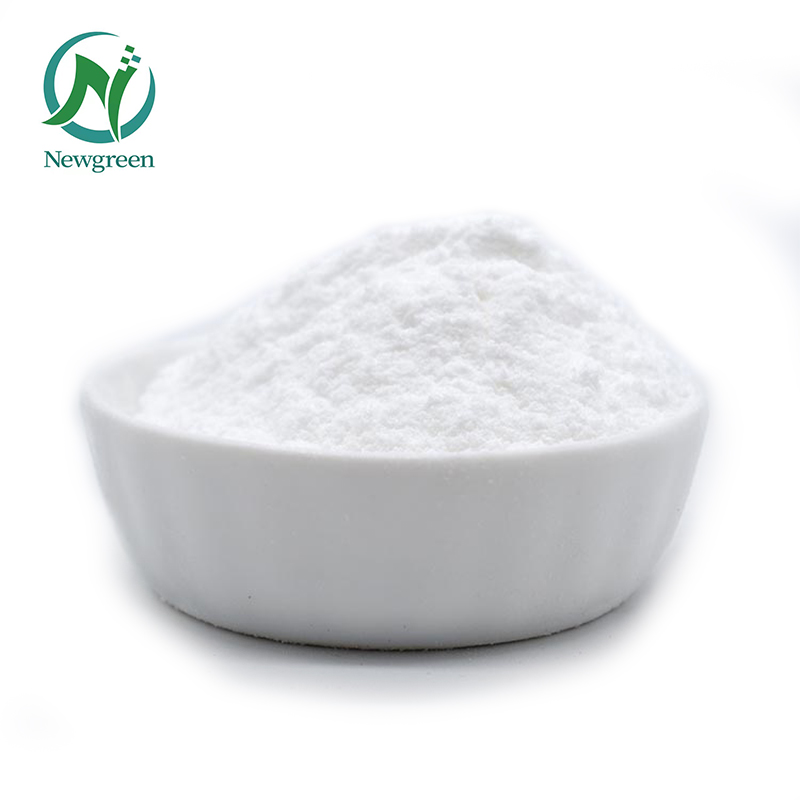
Function
Vitamin B6 performs a variety of important functions and roles in the human body.
1.Protein metabolism: Vitamin B6 participates in the synthesis and metabolism of protein, helping protein to convert into energy or other important biochemical substances.
2.Synthesis of neurotransmitters: Vitamin B6 participates in the synthesis of various neurotransmitters, such as serotonin, dopamine, adrenaline and γ-aminobutyric acid (GABA), which are essential to maintain the normal function of the nervous system.
3.Hemoglobin synthesis: Vitamin B6 participates in the synthesis of hemoglobin and plays an important role in maintaining the normal number and function of red blood cells.
4.Immune system support: Vitamin B6 helps support the normal function of the immune system and promotes the development and function of lymphocytes.
5.Estrogen regulation: Vitamin B6 participates in the synthesis and metabolism of estrogen, and has an impact on the regulation of women's menstrual cycle and estrogen level.
6.Cardiovascular health: Vitamin B6 helps reduce the level of homocysteine in the blood, thereby preventing the occurrence of cardiovascular diseases.
7.Improve skin health: Vitamin B6 participates in the synthesis of choline, which helps to maintain the health and elasticity of the skin.
Application
The application of vitamin B6 mainly involves the following aspects:
Vitamin B6, also known as pyridoxine, is a water-soluble vitamin widely used in multiple industries. The following are several major industry applications:
1.Pharmaceutical industry: Vitamin B6 is widely used in the pharmaceutical field. It can be used as pharmaceutical raw materials, such as calcium supplements, multivitamin tablets, etc. Vitamin B6 can also be used to treat certain neurological diseases, such as peripheral neuritis, various neuralgias, myasthenia, etc.
2.Food processing industry: Vitamin B6 is often used as a nutritional fortifier in food processing. It can be added to cereals, biscuits, bread, pastries, dairy products, meat products and other foods to increase the content of vitamin B6 and provide the nutrients needed by the human body.
3.Animal feed industry: Vitamin B6 is also a common animal feed additive. It can be added to poultry, livestock and aquaculture to improve animal growth performance and health. Vitamin B6 plays an important role in animal protein metabolism, immune regulation and neurodevelopment.
4.Cosmetics industry: Vitamin B6 is also widely used in the cosmetics industry. It can be used to make anti-wrinkle creams, facial masks, anti-acne products and other skin care products. Vitamin B6 plays a positive role in regulating skin oil secretion, improving skin problems, and promoting cell regeneration.
Related Products
Newgreen factory also supplies vitamins as following:
| Vitamin B1 (thiamine hydrochloride) | 99% |
| Vitamin B2 (riboflavin) | 99% |
| Vitamin B3 (Niacin) | 99% |
| Vitamin PP (nicotinamide) | 99% |
| Vitamin B5 (calcium pantothenate) | 99% |
| Vitamin B6 (pyridoxine hydrochloride) | 99% |
| Vitamin B9 (folic acid) | 99% |
| Vitamin B12
(Cyanocobalamin/ Mecobalamine) |
1%, 99% |
| Vitamin B15 (Pangamic acid) | 99% |
| Vitamin U | 99% |
| Vitamin A powder
(Retinol/Retinoic acid/VA acetate/ VA palmitate) |
99% |
| Vitamin A acetate | 99% |
| Vitamin E oil | 99% |
| Vitamin E powder | 99% |
| Vitamin D3 (chole calciferol) | 99% |
| Vitamin K1 | 99% |
| Vitamin K2 | 99% |
| Vitamin C | 99% |
| Calcium vitamin C | 99% |
factory environment

package & delivery

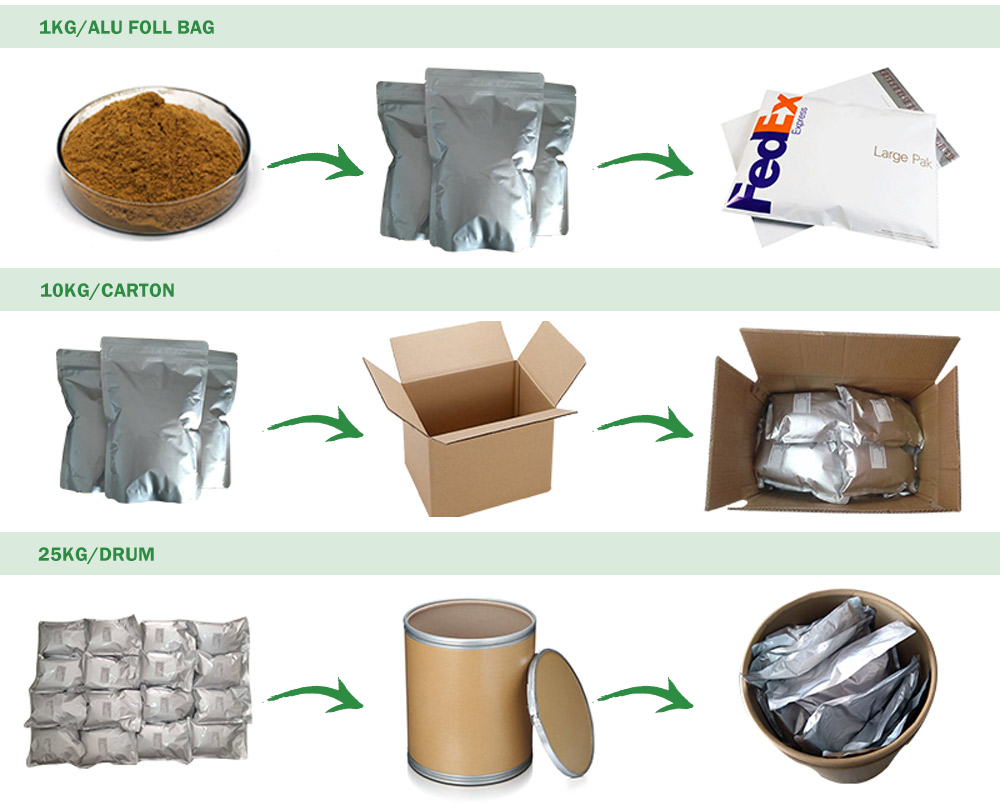
transportation





